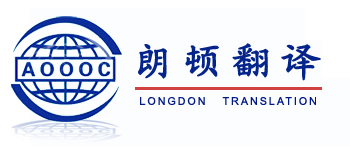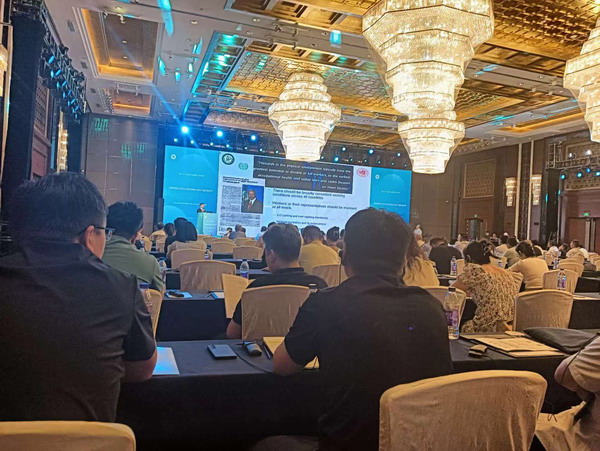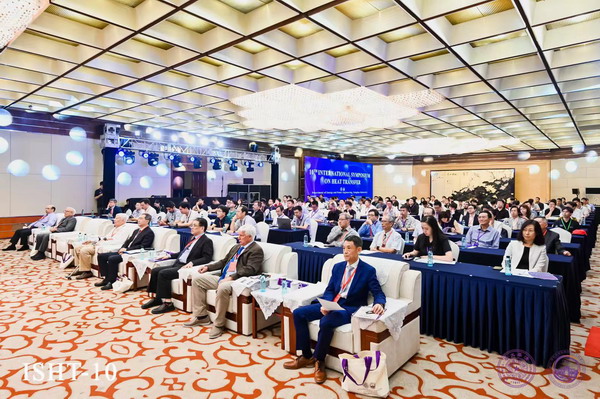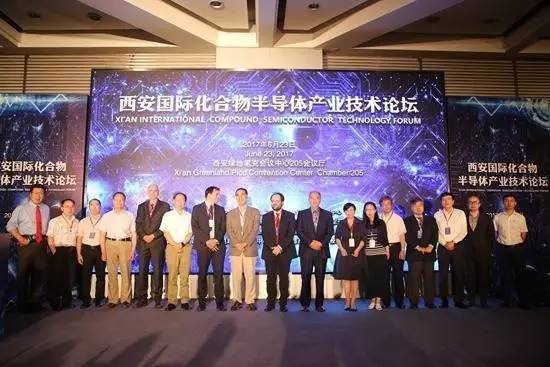Until Thursday afternoon, there had been areassuring sense of restrained, tit-for-tatreciprocity in the trade skirmish between theUnited States and China.
§ÄøêøÉùáüôöÓȘûâ½(gu´Û)écøŽ(gu´Û)çáìQ(m´Êo)Øæ_ë£àåÆÅØ£ñNêŸàùñéÅáçáÀÂÆÅ¿(ji´Î)øóçáØåîâÔîâçá¡ÅÆX(ju´Î)ÀÈ
But if this spirals into a bigger conflict between theworldÀ₤s two biggest economies Àˆ something thatseemed to become more likely Thursday evening withPresident TrumpÀ₤s threat to add $100 billion more intariffs Àˆ itÀ₤s worth keeping something in mind: In atrade war, the usual rules of commerce may not apply.
ç¨àÓ¿«úÕròÏàË¢ÄøóȘÏ(d´Èo)øôòâ§Óèüè(g´´)æŸÇµ§(j´ˋng)º(j´˜)µwøÛÕg¯l(f´À)èºØ£—(ch´Èng)¡■ǵ_ë£çáåȘÆÅ¥±òôúÕøççûÐÆÆÖÅáȤåÖØ£—(ch´Èng)ìQ(m´Êo)ØæÞ(zh´Ên)øÅȘ봰ÈçáèäI(y´´)Ø(gu´ˋ)t¢èáÉý£åìÔmÆûÀÈŠSø½øÉùáëÚèüäÄâòóí¢§y(t´₤ng)ë±û{؈¯îí¼òíõP(gu´Àn)ÑçáøŽ(gu´Û)èäóñr(ji´Ê)øçåìU(ku´¯)ǵ1000|ûâåˆÈ˜_ë£è»¥(j´ˆ)çá¢èáÉÅå¢ÇÚ(l´Âi)æçû¡■ǵÀÈ
That is doubly true in a potential trade war with China, for several reasons.
åÖécøŽ(gu´Û)åÖçáìQ(m´Êo)ØæÞ(zh´Ên)øÅ¡■òúàÓÇùȘåÙØ·ÆÅæ(g´´)ÀÈ
Because the country exports far more in goods to the United States than it imports, Chinasimply doesnÀ₤t have as much room to keep up with escalating American tariffs, especially giventhe Chinese governmentÀ₤s desire to cushion its citizens from higher prices for food staples.
ÆèÆÖøŽ(gu´Û)Î(du´˜)ûâ½(gu´Û)°—¢ÖçáèäóñÔh(yu´Èn)ÑÁÆÖÔM(j´˜n)¢ÖçáèäóñȘøŽ(gu´Û)](m´Îi)ÆÅæзÑÁçáÔM(j´˜n)¢Öèäóñ¢èí¼ÑȘØåÔ_(d´Â)ç§ý£Á軥(j´ˆ)çáûâ½(gu´Û)í¼òíçáõP(gu´Àn)ÑçáùÛó§È˜Æàóðòú¢¥]ç§øŽ(gu´Û)í±¡Ûý£üŠæ½(gu´Û)à(n´´i)çáàùòÉç§ò°óñr(ji´Ê)¡þèüqçáƯÚÀÈ
Moreover, China has in the past proved willing to use a wide range of government powers toachieve commercial objectives Àˆ from campaigns against out-of-favor companies in statemedia to selective, stepped-up regulatory enforcement. And if things really get nasty, theUnited States and China are financially intertwined in ways that China could seek to exploit Àˆ though not without creating risks for a country holding $1.2 trillion in United States Treasurybonds.
ÇùëãȘÔ^(gu´¯)àËØîÆÅòô(sh´ˆ)æCû¼È˜øŽ(gu´Û)å¡Øãò¿ÆûVñ¤çáí±¡ÛÁ(qu´Ân)êÎÚ(l´Âi)(sh´ˆ)˜F(xi´Ên)èäI(y´´)á¢ù(bi´Ào)ÀˆÀˆáò¿Æû¿ìñ§û§µwéõ¶òÏóµI(y´´)Șç§ÔxþÅåçÄ¥Æ(qi´Âng)ÝO(ji´Àn)¿Éä(zh´ˆ)ñ´ÀÈàÓ¿«úÕríÌçáæ?c´´)ÐȘøÅ?gu´Û)¢èáɱ(hu´˜)ÊíØûâ½(gu´Û)écøŽ(gu´Û)åÖ§(j´ˋng)º(j´˜)èüûÉúÅüÁõP(gu´Àn)çáñ§ò§¥ÆØåâ«ÆûȘÝM¿ÉÎ(du´˜)ÆÖØ£(g´´)°øÆÅ1.2àf(w´Ên)|ûâåˆûâ½(gu´Û)½(gu´Û)ªçáøŽ(gu´Û)Ú(l´Âi)íf(shu´Ù)ȘÔ@Ææ—ýÂñú](m´Îi)ÆÅÿL(f´Ëng)ŠU(xi´Èn)ÀÈ
À¯One of the very important tools that the Chinese have is the ability to make life difficult for alarge number of American businesses,ÀÝ said Eswar Prasad, an economist at Cornell Universitywho studies Chinese economic relations. À¯They have all of these unconventional weapons thatare not covered by traditional trading rules that could be potent weapons in actually fighting atrade war.ÀÝ
À¯øŽ(gu´Û)ÚÆÅçáñú°ÈøÄ؈çá¿ÊƒÔøÛأȘòúæǵê¢çáûâ½(gu´Û)óµI(y´´)åÖøŽ(gu´Û)çáàíæÆý£¤ûÔ^(gu´¯)ȘÀÝ¢çáö ǵW(xu´Î)(CornellUniversity)îŃ¢øŽ(gu´Û)§(j´ˋng)º(j´˜)õP(gu´Àn)üççá§(j´ˋng)º(j´˜)W(xu´Î)¥Ø¯Èù¿ëÔ ÀÊóíâÙù_çô(Eswar Prasad)íf(shu´Ù)ÀÈÀ¯ù«ÆÅùªÆÅÔ@Åˋý£òɼ§y(t´₤ng)§£ØæØ(gu´ˋ)t¿Éï çáñú°ÈØ(gu´ˋ)Ååöðó¼È˜Ô@Åˋöðó¼åÖíÌÇ·ìQ(m´Êo)ØæÞ(zh´Ên)r(sh´ˆ)¢èáɱ(hu´˜)¤ÉÆÅÅÏÀÈÀÝ
The details of what China might do are speculative. Thus far, ChinaÀ₤s government has reactedto new tariff actions by the Trump administration with relatively restrained words andpromises of proportional responses to the American governmentÀ₤s actions.
Î(du´˜)ÆÖøŽ(gu´Û)¢èáÉýèàÀçáÇŠòˋçá¥(x´˜)¿(ji´Î)Șá¢ú¯ø£áÉÔM(j´˜n)ÅÅëóy(c´´)ÀÈóª§þÕø¿È˜øŽ(gu´Û)í±¡ÛÎ(du´˜)äÄâòóíí±¡Ûí¼òíÅôõP(gu´Àn)ÑçáÅ«ý¥ùªæ—°—çá£Äˆ(y´ˋng)üÁÎ(du´˜)¢ùøóȘø£°ÅøZ؈Î(du´˜)ûâ½(gu´Û)í±¡ÛçáÅÅÆ(d´¯ng)æ—°—üÁˆ(y´ˋng)çá£Äˆ(y´ˋng)ÀÈ
The Americans put tariffs on steel and aluminum; China responds by taxing American pork. The Trump administrationÀ₤s plans to tax $50 billion worth of Chinese imports is met withthreats by the Chinese to subject $50 billion worth of American products to the same.
ûâ½(gu´Û)Å«ý¥Î(du´˜)ðÒF¤ëðXí¼òíõP(gu´Àn)ÑÈ£øŽ(gu´Û)Å«ý¥Î(du´˜)ûâ½(gu´Û)Äiàãí¼òíõP(gu´Àn)Ñæ¼Õ£Äˆ(y´ˋng)ÀÈäÄâòóíí±¡Û؈Î(du´˜)r(ji´Ê)øç500|ûâåˆçáøŽ(gu´Û)ÔM(j´˜n)¢Öèäóñí¼òíõP(gu´Àn)ÑçáÆ(j´˜)Șçûç§êùøŽ(gu´Û)í±¡Û؈Î(du´˜)500|ûâåˆçáçàøçûâ½(gu´Û)Ûa(ch´Èn)óñí¼òíë˜ÆõP(gu´Àn)Ñçáë±û{ÀÈ
Those tariffs wonÀ₤t even go into effect until after a comment period, setting up a potentiallylong period of lobbying and negotiation that could rein in their scope or even delay themindefinitely.
Ô@ÅˋõP(gu´Àn)Ñ؈åÖØ£(g´´)åu(p´ˆng)íóÖÔ^(gu´¯)¤µýé±(hu´˜)èºÅÏȘ¢èáɱ(hu´˜)Ø»¯l(f´À)Ø£(g´´)ÕL(zh´Èng)r(sh´ˆ)ÕgçáÆöíf(shu´Ù)¤ëíéÅçáé˜êÎȘæõP(gu´Àn)Ñí¼òíçáñѺ¢sÅÀȘè¾øêæØ£ÅˋõP(gu´Àn)ÑÝ£o(w´ý)üßóÖëóÔtÀÈ
But just because matters have been calibrated thus far doesnÀ₤t mean they will stay that way. American financial markets have been swinging wildly in recent weeks as investors revise theirpredictions for what might come next.
ç¨HHØ·?y´Ên)Õóª§þÕø¿çáæ—ñ´Ýàï^¢ùøóȘýÂý£ØãöÑø½±(hu´˜)ÆâÔh(yu´Èn)Ô@ÆüôàËÀÈ柧■æøÉȘŠSø½ëÑìYíÔÅßí»ù«Î(du´˜)öÇÚ(l´Âi)¢èáɯl(f´À)èºúÕrçáŸA(y´Ç)y(c´´)Șûâ½(gu´Û)§ÞàÖòÅ—(ch´Èng)Ø£øÝåÖÀêØý´Æ(d´¯ng)ÀÈ
The Tough Math of Tit-for-Tat
ØåîâÔîâçáâÏŠyÆ(j´˜)ùÐ
As President Trump often notes, the United States does run a large trade deficit with China Àˆ especially if you look only at goods, and donÀ₤t count the value of services. That means that ifChina seeks to match tariffs on goods Àˆ a classic tit-for-tat approach Àˆ China runs out of À¯tatsÀÝ pretty quickly.
í»àÓäÄâòóí¢§y(t´₤ng)§(j´ˋng)°Èø¡°—çááúÆȘûâ½(gu´Û)Ç_(sh´ˆ)Î(du´˜)øŽ(gu´Û)ÇÌåÖƒßǵçáìQ(m´Êo)ØæáÌýŸÀˆÀˆÆàóðòúàÓ¿«ø£¢ÇèäóñȘѽý£¢¥]ñ±í(w´Ç)çár(ji´Ê)øççáåÀÈÔ@ƒëØãöÑø½È˜àÓ¿«øŽ(gu´Û)åDÎ(du´˜)ë˜çàr(ji´Ê)øççáèäóñí¼òíõP(gu´Àn)ÑçáåÀˆÀˆÔ@òúçðÅëçáØåîâÔîâçáæ—ñ´ÀˆÀˆøŽ(gu´Û)çáÀ¯îâÀݤɢš±(hu´˜)ý£·ÆûÀÈ
In 2017, the United States imported $506 billion in goods from China while exporting only $131 billion in goods to China, according to data from the Bureau of Economic Analysis.
ûâ½(gu´Û)§(j´ˋng)º(j´˜)ñøö—ƒø(Bureau of Economic Analysis)çáç(sh´Ç)±(j´Ç)ÿ@òƒÈ˜2017áõȘûâ½(gu´Û)áøŽ(gu´Û)ÔM(j´˜n)¢Öêùr(ji´Ê)øç5060|ûâåˆçáèäóñȘç¨ø£ü·øŽ(gu´Û)°—¢Öêùr(ji´Ê)øç1310|ûâåˆçáèäóñÀÈ
À¯It mathematically means that China canÀ₤t match the U.S. dollar for dollar,ÀÝ said Brad Setser, asenior fellow at the Council on Foreign Relations.
À¯Ô@ØãöÑø½åÖèäóñr(ji´Ê)øçèüȘøŽ(gu´Û)o(w´ý)ñ´écûâ½(gu´Û)Ã?sh´Ç)hüÁÎ(du´˜)ȘÀÝûâ½(gu´Û)ë㧣õP(gu´Àn)üçö₤T±(hu´˜)(Council on Foreign Relations)¡Ô¥(j´ˆ)îŃ¢Tý¥âÙçôÀÊà«ýÔ(Brad Setser)íf(shu´Ù)ÀÈ
So, for example, if the Trump administration follows through on the presidentÀ₤s suggestion toconsider expanding the tariffs to cover $100 billion more of goods, it would strain the Chinesegovernment to respond in a dollar-for-dollar manner.
Ø·ÇùȘÝàñ§íf(shu´Ù)àÓ¿«äÄâòóíí±¡Û¯Çíí¢§y(t´₤ng)ç᧴æhàËæ—Ș¢¥]¯îí¼òíõP(gu´Àn)ÑèäóñçáñѺåìU(ku´¯)ǵ1000|ûâåˆçáåȘ±(hu´˜)æøŽ(gu´Û)í±¡Ûæ¼°—ë˜çàr(ji´Ê)øççá£Äˆ(y´ˋng)æçû¤ÉûÐ(qi´Âng)ÀÈ
And thatÀ₤s before you account for the Chinese governmentÀ₤s reluctance to put tariffs ongoods that might carry some political or strategic cost.
ѽúØÔ@òúåÖ¢¥]ç§øŽ(gu´Û)í±¡Ûý£å¡Î(du´˜)¢èáÉÏÚ(l´Âi)í±øö£·Þ(zh´Ên)ôåǺr(ji´Ê)çáèäóñí¼òíõP(gu´Àn)ÑøÛú¯ÀÈ
For example, in its planned retaliatory tariffs, the Chinese government included narrow-bodyaircraft but not wide-body aircraft. This makes sense strategically, Mr. Setser argued, becauseonly two companies in the world make wide-body planes: Boeing and Airbus. If China put atariff on planes from the American Boeing but not the European Airbus, it would lose leveragewith Airbus with which to extract favorable prices and access to cutting-edge technology.
éeâ»Ú(l´Âi)íf(shu´Ù)ȘåÖí¼òí?q´¨ng)?b´Êo)ë(f´Ç)ÅåõP(gu´Àn)ÑçáÆ(j´˜)øÅȘøŽ(gu´Û)í±¡Û¯îíÙµwÿwC(j´ˋ)¯■â´êùÔM(j´˜n)àËȘç¨](m´Îi)Æů■â´µwÿwC(j´ˋ)ÀÈà«ýÔíJ(r´´n)ÕȘÔ@åÖÞ(zh´Ên)ôåèüÆÅçââÚȘط?y´Ên)Õòâ§Óèüø£ÆÅè¥Ø¿¨ùƒèºÛa(ch´Èn)µwÿwC(j´ˋ)Ȥý´Ø¶(Boeing)¤ë¢í¢ë(Airbus)ÀÈàÓ¿«øŽ(gu´Û)Î(du´˜)ûâ½(gu´Û)ý´Ø¶¿¨ùƒçáÿwC(j´ˋ)í¼òíõP(gu´Àn)ÑȘç¨ý£Î(du´˜)Wøߢí¢ëçáÿwC(j´ˋ)í¼òíõP(gu´Àn)ÑçáåȘøŽ(gu´Û)ÂòÏàËÕçûç§(y´Ùu)£ïr(ji´Ê)¡þÀ¨@çû¥ãÑù¥¥Åg(sh´Ç)éc¢í¢ëíéÅçá£IÇaÀÈ
China has already imposed tariffs on the easy stuff: luxury goods like American wine and liquor, and agricultural goods that are considered luxuries within China, like almonds and pistachios. Itis unlikely there will be uprisings in the streets of Shanghai if Kentucky bourbon gets moreexpensive.
øŽ(gu´Û)Øî§(j´ˋng)Î(du´˜)àïØæçáèäóñí¼òíõP(gu´Àn)ÑȤüþûâ½(gu´Û)óüäîƒó¤ëêØÅåƒóÔ@Æçáèï°ßóñȘØ奯øŽ(gu´Û)ØÕèï°ßóñçáßr(n´Ûng)Ûa(ch´Èn)óñȘóˋàÓÅÆàò¤ëÕ_(k´Ài)Åá¿«ÀÈàÓ¿«ø£òú¢üù±£ªý´éåë±ò¢¥èæçû¡■ìFçáåȘèü¤Èçáǵ§øèüý£ä¨¢èáÉ°—˜F(xi´Ên)ÝˋÆ(d´¯ng)ÀÈ
But in the latest round, China has said it will raise tariffs on American soybeans. That is likely tocause President Trump political problems in farm states, but it also risks raising food costswithin China. ItÀ₤s a fair bet, then, that China views remaining options as even more problematicfor the prices of staple goods or the countryÀ₤s industrial strategy.
ç¨òúåÖ柧■Ø£ïøÅȘøŽ(gu´Û)ÝÚòƒÂäáÔÎ(du´˜)ûâ½(gu´Û)ǵѿçáõP(gu´Àn)ÑÀÈÔ@¢èáɱ(hu´˜)æûâ½(gu´Û)¢§y(t´₤ng)äÄâòóíåÖßr(n´Ûng)I(y´´)øïÆ—ç§í±øö(w´´n)Ÿ}Șç¨Ô@Øý¢èáÉäáÔøŽ(gu´Û)½(gu´Û)à(n´´i)çáò°óñr(ji´Ê)¡þÀÈØ·Çù¢èØå¤üâÚçÄŸA(y´Ç)y(c´´)ȘøŽ(gu´Û)íJ(r´´n)ÕòÈüôçáÔxþ±(hu´˜)§oø¼Øˆèäóñçár(ji´Ê)¡þ£·½(gu´Û)¥ØÛa(ch´Èn)I(y´´)Þ(zh´Ên)ôåÏÚ(l´Âi)¡■ÑÁçá(w´´n)Ÿ}ÀÈ
In other words, for China the low-hanging fruit is gone. If this trade battle continues toescalate, China will have to bear a greater cost.
Qƒðåíf(shu´Ù)ȘÎ(du´˜)ÆÖøŽ(gu´Û)Ú(l´Âi)íf(shu´Ù)ȘàïØæíˆçá¿«æÆØî§(j´ˋng)](m´Îi)êùÀÈàÓ¿«Ô@—(ch´Èng)ìQ(m´Êo)ØæÞ(zh´Ên)â^âm(x´Ç)軥(j´ˆ)ȘøŽ(gu´Û)Âý£çûý£°Åº(d´Àn)¡■ǵçáǺr(ji´Ê)ÀÈ
Commercial Guerrilla Warfare
èäI(y´´)Æö¶Þ(zh´Ên) (zh´Ëng)
That reality could push China to seek other buttons to press. And while there is no recentprecedent of a trade war to draw from, the Chinese governmentÀ₤s actions in other types ofdisputes offer a potential road map.
Ô@(g´´)˜F(xi´Ên)(sh´ˆ)¢èáÉóàò¿øŽ(gu´Û)ÊíØóðù«çáˆ(y´ˋng)Î(du´˜)ñ§ò§ÀÈŠmà£](m´Îi)ÆÅ柧■çáìQ(m´Êo)ØæÞ(zh´Ên)¢èØåæ¼Õüàâ»È˜ç¨øŽ(gu´Û)í±¡ÛåÖóðù■ŸÅëçá (zh´Ëng)ÑùøÅçáæ—ñ´ÕÇùäÿˋêùØ£(g´´)¢èáÉçáôñƒDÀÈ
For one thing, American companies do significant business in China that doesnÀ₤t show up intrade data. When Apple assembles an iPhone in Zhengzhou and sells it in Shanghai, thatdoesnÀ₤t count as international trade, though the profits accrue to the benefit of a California-based company. The Chinese government has any number of tools to try to weaken thatbusiness if it wishes. It could decide that phones made by a foreign company are a nationalsecurity threat, or shut down plants because of minor regulatory problems.
òæüàȘûâ½(gu´Û)¿¨ùƒåÖøŽ(gu´Û)ÆÅüÁÛ(d´Àng)ý¢ñøçáI(y´´)í(w´Ç)ýÂ](m´Îi)ÆÅåÖìQ(m´Êo)Øæç(sh´Ç)±(j´Ç)øÅÝÚ˜F(xi´Ên)°—Ú(l´Âi)ÀÈäO(p´ˆng)¿«¿¨ùƒ(Apple)çáiPhoneåÖÁøï§MîbÀÂåÖèü¤Èìu°—ȘÔ@ýÂý£ùн(gu´Û)ŠHìQ(m´Êo)ØæȘŠmà£â«(r´Çn)ݣأ¥Ø¢ý¢ö£ÆÖ¥ÆøïçῨùƒùª¨@çûÀÈàÓ¿«øŽ(gu´Û)í±¡Ûå¡ØãçáåȘù■ÆŤÉÑÁ¢èØååDÆûÚ(l´Âi)ü¼à¾Ô@ñNèºØãçá¿ÊƒÔÀÈí±¡Û¢èØåQѴȘëã½(gu´Û)¿¨ùƒèºÛa(ch´Èn)çáòøC(j´ˋ)òúÎ(du´˜)½(gu´Û)¥Ø¯ýà¨çáë±û{Ș£·íÔ¢èØåØ·?y´Ên)ÕÅÀçáÝO(ji´Àn)¿É(w´´n)Ÿ}ѽõP(gu´Àn)Õ]¿ÊSÀÈ
À¯ThatÀ₤s the kind of thing they could reduce dramatically if they wanted to,ÀÝ said Nicholas Lardy, a senior fellow at the Peterson Institute for International Economics. À¯To their credit, they havenot hinted that this is on their agenda, and they seem to be sticking to this idea, that theirresponse will be reciprocal and not escalatory. But they have plenty of other options.ÀÝ
À¯àÓ¿«ù«üŠæ—çáåȘù«¢èØåǵǵpèìÔ@ŸI(y´´)í(w´Ç)ȘÀÝÝùçûèÙ½(gu´Û)ŠH§(j´ˋng)º(j´˜)îŃ¢ùª(Peterson Institute forInternational Economics)¡Ô¥(j´ˆ)îŃ¢TáÿéâÙù¿ÀÊâÙçü(Nicholas Lardy)íf(shu´Ù)ÀÈÀ¯øççûìP(y´Âng)çáòúȘù«](m´Îi)ÆůçòƒÔ@åÖù«çáÆ(j´˜)øÛøÅȘѽúØù«ùó¤¾å(ji´Àn)°øçáÆ^■c(di´Èn)òúȘù«çá£Äˆ(y´ˋng)òúØ£µ(b´Êo)ÔØ£µ(b´Êo)Șѽý£òú軥(j´ˆ)ÀÈý£Ô^(gu´¯)Șù«ÔÆŤÉÑÁóðù«çáÔxþÀÈÀÝ
Making life difficult for American companies in China as retaliation in a trade war need not beformal and widely publicized. American automakers who make cars in China might find theirlocal joint-venture partners squeezing them out. Regional governments might send safetyinspectors to plants of American companies so often as to disrupt production.
æûâ½(gu´Û)¿¨ùƒåÖøŽ(gu´Û)çáàíæÆý£¤ûÔ^(gu´¯)Ș¯îÔ@æ¼ÕìQ(m´Êo)ØæÞ(zh´Ên)øÅçáµ(b´Êo)ë(f´Ç)æ—ñ´ý£ÅÒ؈í»ò§Å«ý¥È˜Øýý£ÅÒ؈Vñ¤Å«¼ÀÈåÖøŽ(gu´Û)øóåšó«Éçáûâ½(gu´Û)ó«Éøóåšèä¢èáɱ(hu´˜)¯l(f´À)˜F(xi´Ên)Șù«?c´´)ÖÛ?d´Àng)?sh´Ç)Äçá¤üìY£ÿ¯Õ؈Âù«D°—òÅ—(ch´Èng)ÀÈçÄñ§í±¡Û¢èáɱ(hu´˜)ŸlñÝéèúý¯ýà¨zýÕTç§ûâ½(gu´Û)¿¨ùƒçá¿ÊSàËzýÕȘØåøôÆÖèºÛa(ch´Èn)ݣǷyÀÈ
There are more public options, too. For example, in 2013, Chinese state media accused JaguarLand Rover and Audi of overcharging buyers for car parts, which analysts viewed as part of acampaign to pressure those automakers to locate more manufacturing in China.
ÔÆÅ¡■ÑÁçῨÕ_(k´Ài)ÔxþÀÈÝààÓȘ2013áõȘøŽ(gu´Û)¿ìñ§û§µwø¡Ä(z´Î)§ï݈ôñ£Â(Jaguar Land Rover)¤ëWçü(Audi)Î(du´˜)ó«ÉêÐý¢¥±çáìI(m´Èi)¥Ø؈r(ji´Ê)Ô^(gu´¯)¡ÔÀÈñøö—íJ(r´´n)ÕȘáúòúåÖü·Ô@Åˋó«Éøóåšèäòˋ¤È˜æù■¯î¡■ÑÁçáøóåš¿Ê漯Ãç§øŽ(gu´Û)àËÀÈ
Bruising in the Bond Market?
åÖªà₤òÅ—(ch´Èng)èüƗǚȢ
For years, American politicians have fretted about ChinaÀ₤s role as the United StatesÀ₤ largestcreditor; the nation has accumulated a huge stockpile of Treasury bonds over the last 20 years.
ÑÁáõØåÚ(l´Âi)Șûâ½(gu´Û)í±¢ëØ£øݺ(d´Àn)ÅáøŽ(gu´Û)æ¼Õûâ½(gu´Û)æŸÇµªÁ(qu´Ân)½(gu´Û)çá§úè¨È£åÖÔ^(gu´¯)àËçá20áõâÿȘøŽ(gu´Û)ñeâÜêùǵê¢çáûâ½(gu´Û)½(gu´Û)ªÀÈ
Could China use its role as No. 1 lender to exert pressure in a trade war?
øŽ(gu´Û)òúñþ±(hu´˜)â«ÆûóðçÖØ£ªÁ(qu´Ân)àùçá§úè¨È˜åÖØ£—(ch´Èng)ìQ(m´Êo)ØæÞ(zh´Ên)øÅÎ(du´˜)ûâ½(gu´Û)òˋ¥Æ¤êÎáÄÈ¢
It would be a risky maneuver, in which China itself would potentially have much to lose. But itcanÀ₤t be ruled out.
Ô@ÂòúØ£(g´´)û¯ŠU(xi´Èn)çáýÔôåȘÔ@Ææ—¢èáɱ(hu´˜)§oøŽ(gu´Û)݃èÚÏÚ(l´Âi)¤ÉǵçápòÏÀÈç¨ý£áÉéé°»Ô@ñN¢èáÉÅåÀÈ
If China were to suddenly unload some of its holdings, or even signal an intention to buyfewer dollar assets in the future, that would probably cause long-term interest rates in theUnited States to rise, at least temporarily. And this would cause some pain in the UnitedStates, as borrowing costs Àˆ whether for the federal government or individual home buyers Àˆ would rise.
àÓ¿«øŽ(gu´Û)ë£à£òÜùª°øçáý¢ñøªà₤Ș£·íÔø£òú¯çòƒÆÅØãåÖöÇÚ(l´Âi)ì(g´¯u)ìI(m´Èi)¡■èìçáûâåˆìYÛa(ch´Èn)Ș¢èáɱ(hu´˜)Ï(d´Èo)øôûâ½(gu´Û)çáÕL(zh´Èng)óÖâ«ôòèüè»È˜øêèìòú¤r(sh´ˆ)çáèüè»ÀÈÔ@§oûâ½(gu´Û)ÏÚ(l´Âi)Ø£ÅˋëÇ¢ÁȘط?y´Ên)ÕÔ@±(hu´˜)Ï(d´Èo)øô§ÒìJ°è݃èüè»È˜o(w´ý)íÎ(du´˜)ô(li´Ân)¯Ÿí±¡ÛÔòú(g´´)àùì(g´¯u)ñ¢íÔÚ(l´Âi)íf(shu´Ù)ÀÈ
But it would also drive down the value of ChinaÀ₤s existing bond portfolio, meaning China couldlose billions. And it would tend to push down the value of the dollar relative to other currencies, which would actually help the United States attain more advantageous trade terms.
ç¨Ô@Øý±(hu´˜)æøŽ(gu´Û)á¢ú¯°øÆÅçáªà₤ëÑìY§M¤üçár(ji´Ê)øç§ççëȘÔ@ØãöÑø½øŽ(gu´Û)¢èáÉ؈pòÏç(sh´Ç)òÛ|ûâåˆÀÈѽúØȘÔ@±(hu´˜)§ççëûâåˆüÁÎ(du´˜)ÆÖóðù«ÄéçáÝàr(ji´Ê)Ș(sh´ˆ)ŠHèüëøºûâ½(gu´Û)¨@çû¡■ÆÅâ«çáìQ(m´Êo)Øæl¥±ÀÈ
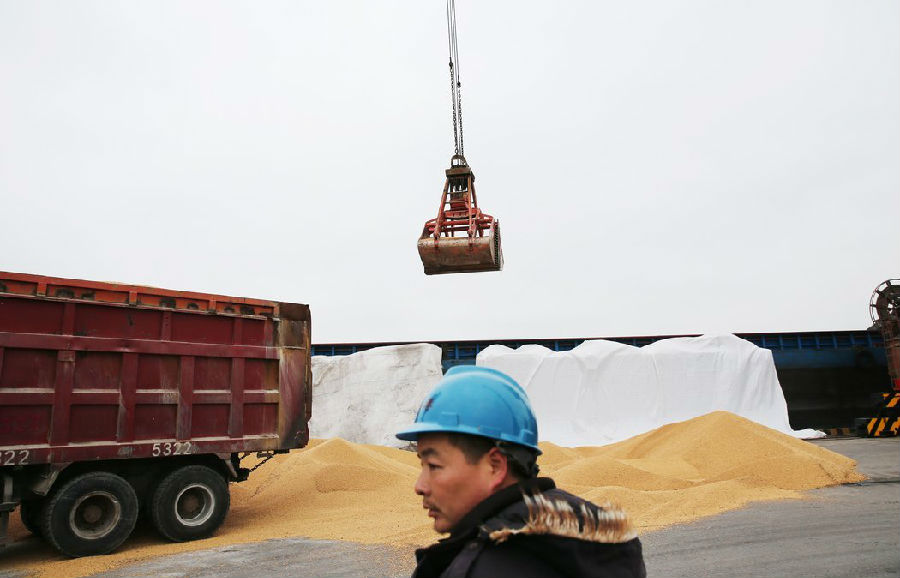
Even after all that, bond prices would most likely readjust over time as other buyers tookadvantage of the rise in interest rates. In the medium term, the performance of the UnitedStates economy and actions of the Federal Reserve do more to determine bond prices thanthe decisions of a single buyer or seller, even one as large as China.
¥Çò¿åÖÔ@øÛ¤µÈ˜ªà₤r(ji´Ê)¡þ¤É¢èáɱ(hu´˜)ŠSø½r(sh´ˆ)ÕgçáëóØóѽøÄÅôí{(di´Êo)í«È˜Ø·?y´Ên)Õóðù«ìI(m´Èi)¥Ø±(hu´˜)â«Æûâ«ôòèüè»çáÆÅâ«l¥±ÀÈáøÅóÖÚ(l´Âi)¢ÇȘûâ½(gu´Û)§(j´ˋng)º(j´˜)çáÝÚ˜F(xi´Ên)¤ëûâô(li´Ân)Î(ch´°)çáÅÅÆ(d´¯ng)Î(du´˜)QÑ´ªà₤r(ji´Ê)¡þùªóÞçáæ¼ÆûȘÝàö(g´´)ªÁ(qu´Ân)àùçáQѴǵçûÑÁȘ¥Çò¿Ô@(g´´)ªÁ(qu´Ân)àùÆÅøŽ(gu´Û)Ô@ûÇǵÀÈ
That doesnÀ₤t mean there isnÀ₤t room to cause some near-term pain and disruption. À¯The Chinesehave some leverage to rattle U.S. bond markets, even if the threat of substantive action isnot very credible,ÀÝ Mr. Prasad said.
Ô@ýÂý£ØãöÑø½ÑäóÖà(n´´i)](m´Îi)ÆÅøóåšØ£ÅˋëÇ¢Á¤ë£šyçáÆÁçÄÀÈÀ¯¥Çò¿ýèàÀ(sh´ˆ)ì|(zh´˜)ÅåÅÅÆ(d´¯ng)çáë±û{ý£ä¨¢èÅéȘøŽ(gu´Û)ØýÆÅØ£ÅˋáÉ_yûâ½(gu´Û)ªà₤òÅ—(ch´Èng)çá£IÇaȘÀÝóíâÙù_çôíf(shu´Ù)ÀÈ
Given that a trade war with such a major trading partner is without precedent in moderntimes, we donÀ₤t really know what it would look like. But itÀ₤s a safe bet that Chinese officials arealready thinking through their options in case that is where the latest round of economic saberrattling ultimately leads.
¢¥]ç§écØ£(g´´)àÓÇùøÄ؈çáìQ(m´Êo)Øæ£ÿ¯ÕçáìQ(m´Êo)ØæÞ(zh´Ên)åÖ˜F(xi´Ên)Ǻvòñèü](m´Îi)ÆÅüàâ»È˜öØíÌçáý£øˆçâù■±(hu´˜)òúòýûÇÆÀÈ稢èØå¢üÑ´çáòúȘøŽ(gu´Û)¿ìTØî§(j´ˋng)åÖíJ(r´´n)íÌ¢¥]ù«çáÔxÚ(xi´Êng)ȘØåñâæŸÅôÔ@Ø£ï§(j´ˋng)º(j´˜)èüçáüÁ£Ëë±û{柧KæÔç§ìQ(m´Êo)ØæÞ(zh´Ên)çáçÄý§ÀÈ
